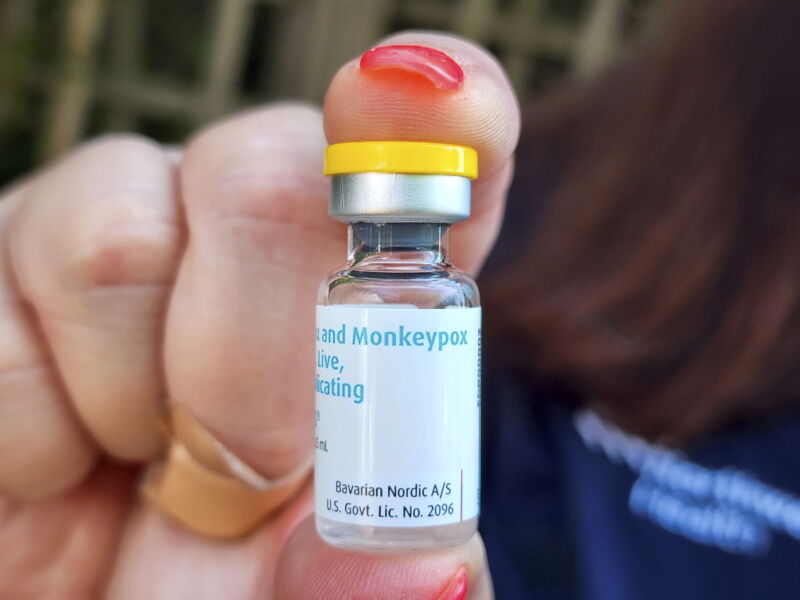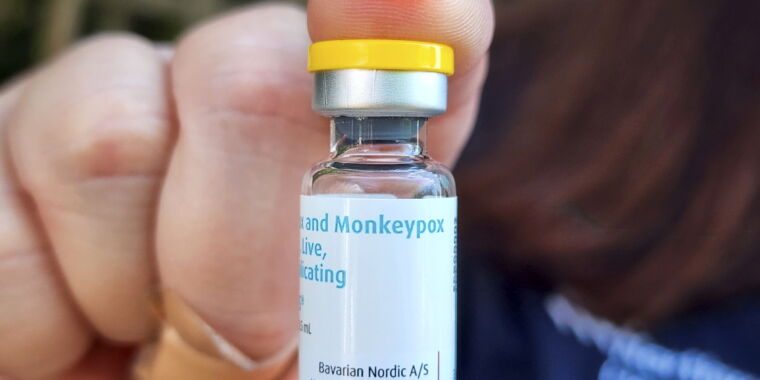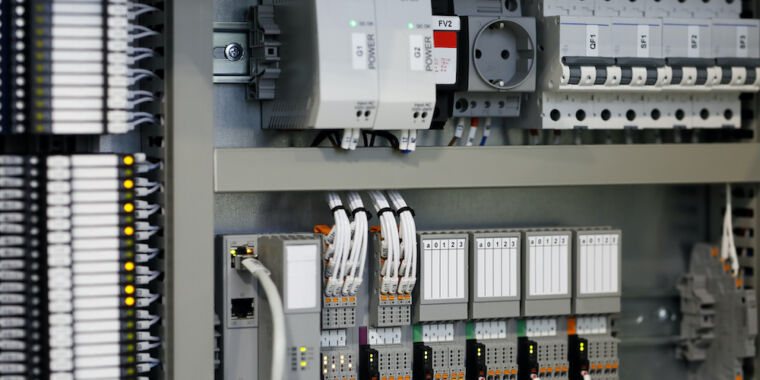
US monkeypox cases hit 1,470 this week, and federal officials reported Friday that they expect the tally to continue rising amid expanded testing, continued community transmission, and a current shortage of vaccines. The federal update comes as officials face growing criticism over their handling of the outbreak, and experts fear it may already be too late to contain the virus.
Overall, the multinational monkeypox outbreak has tallied nearly 13,000 cases, with the largest counts in Spain (2,835), Germany (1,859), and the UK (1,856). The US now ranks fourth worldwide. But, it could potentially move up in the ranks quickly.
“We anticipate an increase in cases in the coming weeks,” Rochelle Walensky, director of the US Centers for Disease Control and Prevention, said in a press briefing Friday. Walensky laid out three reasons why they are expecting an upcoming rise.
First, the agency has just recently streamlined the reporting process for states, which first began reporting cases in May. Second, because there’s often a three-week incubation period between exposures and symptoms, officials expect to start seeing the cases from transmission events early in the US outbreak. Last, the CDC has expanded testing capacity recently, adding some commonly used commercial labs, such as Labcorp and Quest Diagnostics. The expansion boosted capacity from performing a maximum of about 6,000 tests per week to 70,000. It also makes it easier for clinicians to order tests and will likely speed up the turnaround for results.
Testing had previously been limited to a small network of CDC labs, and there were many reports of delayed results, with patients waiting five to seven days.
Snags in response
But, while the country’s ability to identify cases may improve, treating cases and preventing new ones is still a struggle. The Washington Post reported Friday that doctors have to complete hours upon hours of paperwork to gain access to smallpox antivirals from the Strategic National Stockpile—and that paperwork has to be completed for each patient. “It’s been a very daunting task,” Roy Gulick, chief of the Division of Infectious Diseases at New York Presbyterian/Weill Cornell Medical Center, told the Post.
Meanwhile, the US is short on the Jynneos smallpox/monkeypox vaccine used for pre- and post-exposure prophylaxis. The CDC recommends the vaccine for those with known or suspected monkeypox exposures. But many places—most notably New York City—have been overwhelmed by demand and run out of doses quickly.
“I want to acknowledge that, at this time, the demand for vaccines from jurisdictions is higher than our current available supply,” Walensky said. “And we know that this is frustrating.”
Today, the Department of Health and Human Services announced that it is making an additional 131,000 doses available for states to order, which could begin to arrive in jurisdictions by early next week. The new vaccine batch is on top of the 156,000 doses that have already been distributed.
With the plodding progress in responding to the outbreak, many experts are worried that the virus could become established in the US. For now, US officials say that the vast majority of cases continue to be among people who identify as men who have sex with men. But health experts warn that as the outbreak grows, it will become more likely that the virus will spread to groups most vulnerable to severe disease, namely pregnant people and children. So far, at least eight people who were identified as female at birth have been infected in the US. However, the CDC only has demographic data on around 700 of the country’s 1,470 cases.








